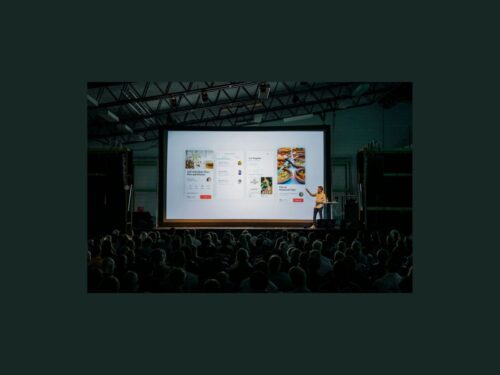City aims to become world leader in social innovation alongside its academic, life sciences and tech prowess A new...
How Smart WiFi can improve your TripAdvisor reviews
How important is Wi-Fi access to the average person? It’s the kind of question that’s easy to answer with the word ‘very’ but more difficult to put a number on.
We can start to quantify the importance of Wi-Fi provision, however, by looking at the raw statistics for the number of people in the UK who own a smartphone, and can reasonably be expected to value being able to get online.
According to Statista, the number of people in the age group 16-34 who own a smartphone is 95% (actually down from the 2017 high of 96%). For people aged 35-54 this figure is still as high as 91% and it only drops to 51% when we reach the 55-64 age group.
The virtually total market penetration of smartphones has created a situation in which the provision of Wi-Fi – and with it the ability to make use of those smartphones at all times – is now pretty much taken for granted.
According to research carried out by Wi-Fi analytics experts purple, the impact of Wi-Fi provision in bars and restaurants, for example, is huge. Of 1,000 people questioned, 80% said that being able to use the Wi-Fi when out wining and dining would make the experience feel more personalised and positive.
Amongst the much sought after 18-34 demographic this figure rose to 90%, while 60% of all those questioned said that effective Wi-Fi provision would increase their loyalty to the establishment in question.
And what are people doing with this Wi-Fi provision? Apparently, 84% of people browse the internet while out socialising, while 58% like to stay in touch with friends. If you run any kind of venue – such as a shopping centre, hotel or events venue – in which you want people to enjoy their visit and perhaps linger for longer than is strictly necessary, then Wi-Fi provision of this kind is now as much a necessity as decent heating and lighting.
The heating and lighting reference may read like an overstatement but it is, in fact, pretty much the perfect comparison. Just like heating and lighting, Wi-Fi provision is now one of those aspects of customer service which only tends to be noticed when it’s not there.
You won’t find many positive TripAdvisor reviews which highlight ‘really efficient heating systems’, for example, but if someone spends an evening shivering in an under-heated restaurant then you can bet it will be mentioned, and as part of a set of negative TripAdvisor comments.
If you don’t offer Wi-Fi provision then it will impact negatively on everything else you do offer. As noted above, positive TripAdvisor reviews might not specifically mention how good your Wi-Fi provision was, but the fact that they can get online as quickly and easily as they do in the comfort of their own home will enable people to gain maximum enjoyment from everything else you offer.
It has to be remembered that for many people a leisure experience hardly counts as a leisure experience unless they’re able to capture and upload the most exciting moments in real time. Take this away from your customers and those exciting moments instantly start to feel less exciting.
The one caveat to all of this is that you have to invest the time and money needed to ensure that the Wi-Fi you provide is up to scratch. If your venue advertises ‘free Wi-Fi’ you can rest assured that customers won’t be thinking ‘It’s free so it probably won’t be that good’. They’ll just see the word Wi-Fi and expect the same kind of access as they get at home with a hub serving two laptops, three smartphones and a tablet or two.
This means that your Wi-Fi provision is only going to impact positively on the TripAdvisor reviews you get if you take a few simple steps:
1) Keep Things Simple – few things annoy customers more – especially if they’re busy trying to have a good time – than a long and complicated signing in process. Joining the network may seem like the ideal opportunity to start gathering data, but at this stage in proceedings building loyalty through ease of use is undoubtedly more important.
2) Security – keep your systems as secure as possible since public Wi-Fi networks are a notorious hotspot for malicious hackers and eavesdroppers. An encrypted local Wi-Fi solution, for example, will mean that separate users within the system can’t snoop on each other. Simplicity and a great user experience may naturally be your top priorities, but any lapse in security – such as a hack of the customer analytics you’ve gathered – could destroy brand loyalty further down the line.
3) Connection Speed – Everyone hates a slow WiFi connection. WiFi can easily get congested when it gets busy. There’s nothing more frustrating to internet users than pages which just won’t load. Reducing congestion is part of good radio system design, and good WiFi needs a good understanding of radio principles and traffic management.
4) Coverage – your chosen Wi-Fi vendor should know exactly how many access points are needed to maintain consistent coverage across the whole of your site. Getting this right will depend upon a careful calculation taking in the physical size of the site and the number of visitors you expect to be accessing the system at any one time. An experienced vendor will have a track record of getting this kind of calculation exactly right. It’s also worth checking if they offer coverage guarantees.
Next Steps
With over 10 years’ experience offering professional Wi-Fi solutions, Novahub can make your Wi-Fi work better to improve your customer’s experience, enhance your venue’s attractiveness and increase your business productivity.
Contact Novahub on 01223 661310 or email us at contact@novahub.co.uk to order a free site survey (depends on location) or Wi-Fi site evaluation to discover how your existing Wi-Fi systems can be improved. If you want to know more about effective Wi-Fi provision right now, then download our Buyer’s Guide to Enhancing Customer Experience with Smart Wi-Fi.
Cambridge entrepreneurs address city’s inequality with pioneering £multimillion ‘pay-it- forward’ initiative
AT&T Launches Its First Converged Feature for Consumers with Internet Backup – Using AT&T Wireless to Keep Fiber Customers Online at No Extra Cost
This new solution combines the power of AT&T Fiber and wireless, so customers can stay connected in the event of a...
One deck is not enough!
We’ve all been there. Sat through a presentation that makes the eyes bleed. The walls of 10pt text… The barrage of...




